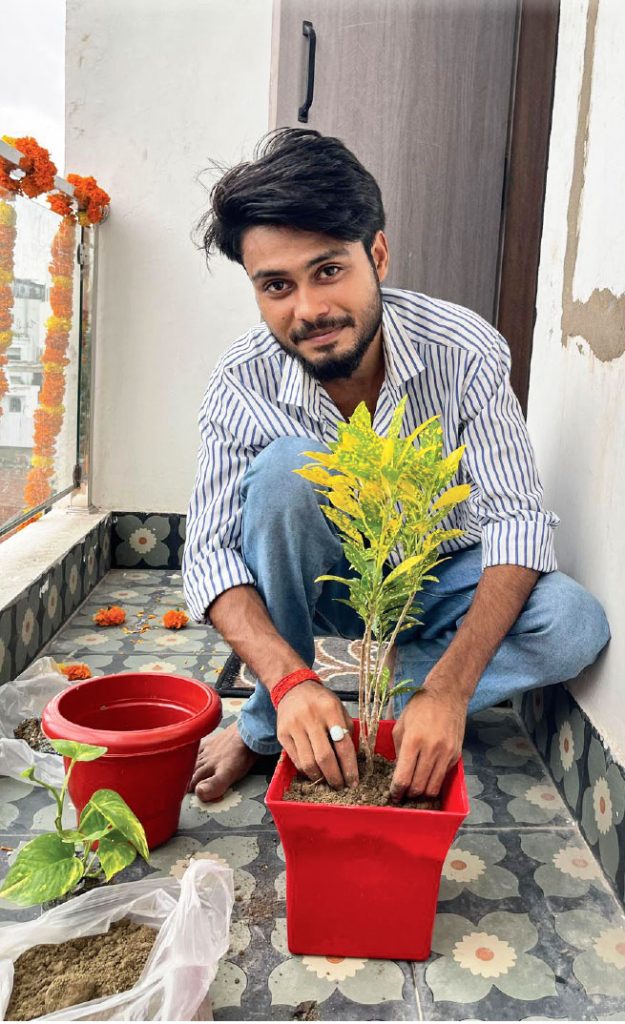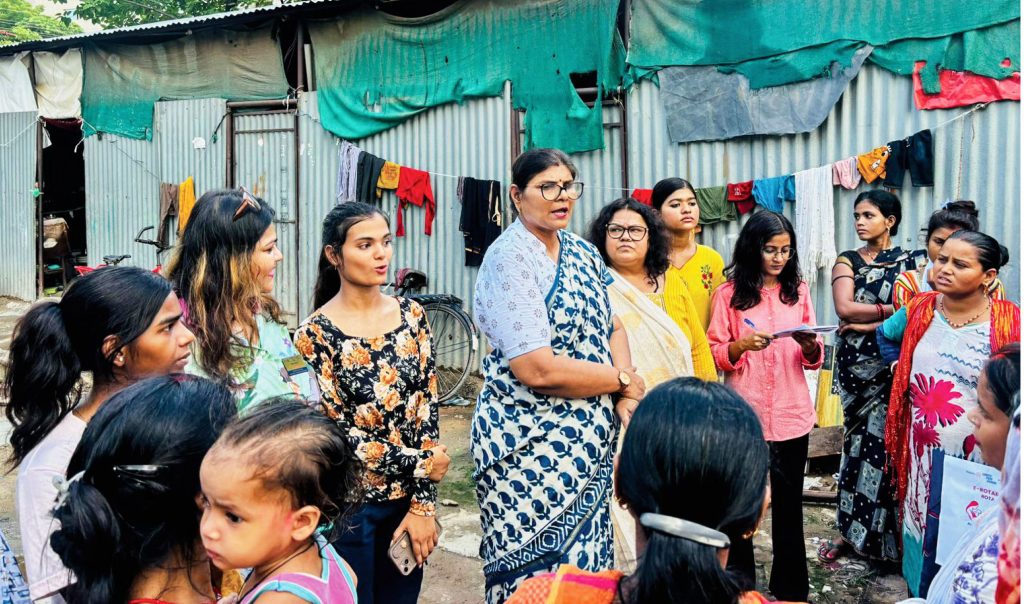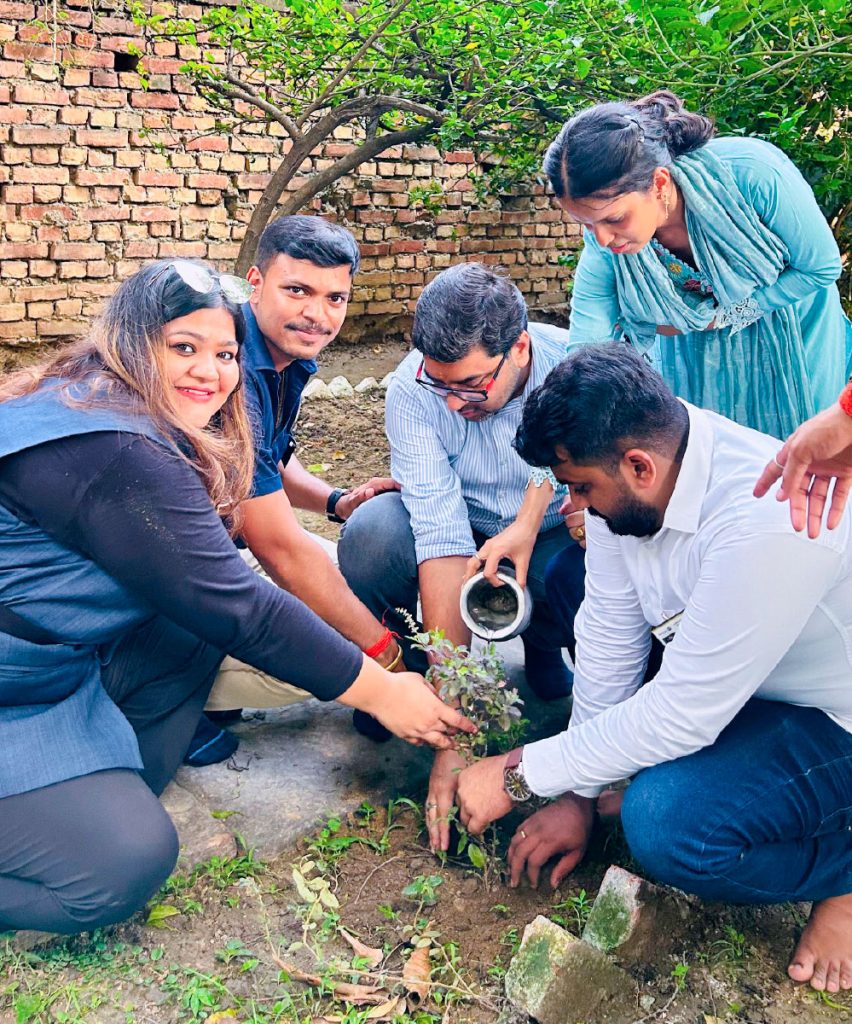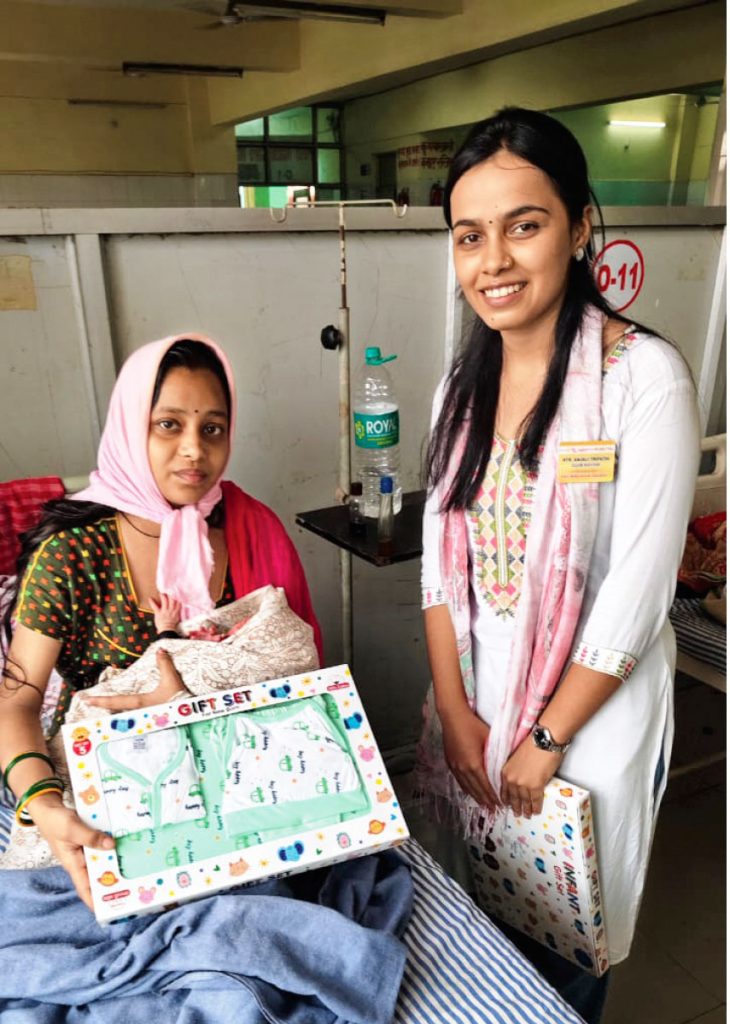Nurturing lives and the environment
It is normal to feel exhausted or anxious after childbirth. What matters is knowing when to ask for help,” a Rotaractor explained to a group of women in a Patna slum. Some mothers leaned forward with questions about sleepless nights and constant worry, while others simply listened, hearing, for the first time, that postpartum depression was not weakness but a health issue that could be managed.

This interaction was one of many activities carried out under Project Sneh (love), Rotaract District 3120’s official July month project focusing on maternal and child health.
Over the course of a month, Rotaractors across the district organised pregnancy yoga sessions, rural birth planning workshops, vaccination and breastfeeding awareness campaigns, distribution of baby kits and eco-friendly diapers, postpartum mental health camps, and even ‘fatherhood babysitting’ training.

The project recognised that maternal care extends beyond medical support. Postpartum camps guided mothers in recognising signs of depression, learning relaxation techniques, and sharing experiences with peers. The initiative also broke stereotypes by placing families, not just mothers, at the centre of maternal care. Postpartum camps taught women to identify signs of depression and use simple stress management techniques, while also encouraging them to seek help when needed. Fatherhood babysitting sessions nudged men to participate in newborn care, challenging cultural norms but slowly shifting attitudes.
By including eco-friendly solutions like cloth diapers, Rotaractors added a sustainability angle to maternal health. “By introducing innovations like eco-friendly diapers and family-inclusive health education, Sneh combined compassion with fresh ideas — showing that small behavioural shifts can create lasting change in family wellbeing,” says project coordinator Muskan Singh.

Instead of handing over a bouquet, a Rotaractor offered a small tulsi plant at a community event in Allahabad. “The gesture surprised the recipient but also delighted him. This gift would keep growing long after the moment had passed. Such simple acts of replacing a bouquet with a plant sapling are at the heart of Project Prakruthu Bandhan, a campaign that replaced wasteful customs with green ones,” says DRR Mahi Bhan. He adds that the project “gave Rotaractors simple but powerful tools such as planting, gifting seeds and saplings, and creating awareness on environmentalism from an abstract cause into a daily practice.”
Across the district Rotaractors translated this idea into three campaigns: Green Gifting, Roots in Schools and One Home, One Plant. “From classrooms where children tended herbal gardens, to homes where families proudly watered their tulsi and neem saplings, the campaign touched thousands of lives and spaces,” says district chair Kushagra Mishra.

The project also created a patriotic fervour with Vriksh Veer (Tree Soldiers). Each sapling planted was dedicated to a Kargil hero, “turning the tree plantating drive into a living tribute. Rotaractors across the district planted saplings in homes, schools, parks, and villages, each one carrying the memory of a fallen soldier,” says Bhan.
